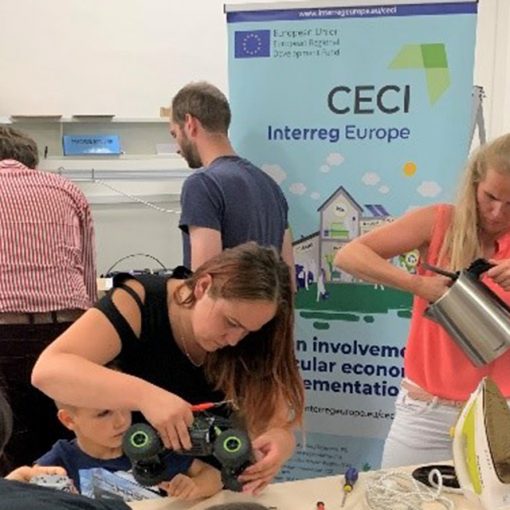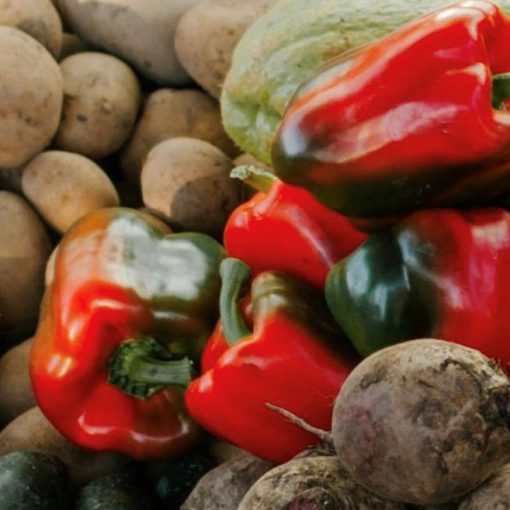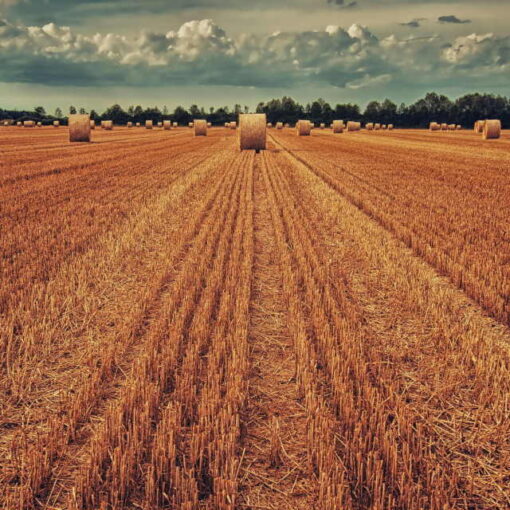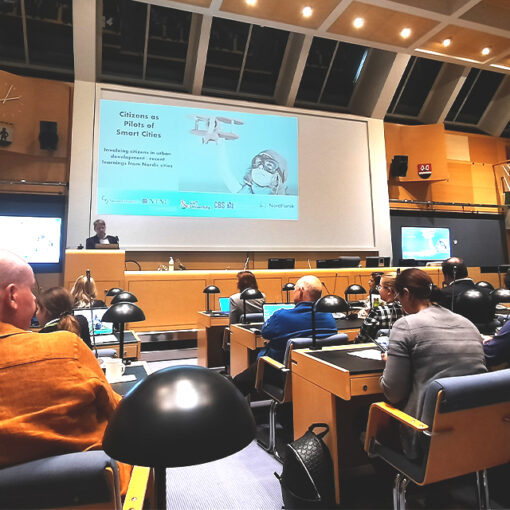Biogas is a topical issue in several EU countries. In 2018, the revised European Union waste policy introduced stricter rules for handling bio-waste (European Commission 2020). By 2023, separate collection of bio-waste was set to be mandatory throughout Europe. At the same time, it encourages the change from land-filling and incineration towards anaerobic digestion (AD) and composting as this is beneficial both for the climate and the society.
Cities and regions are interested in biogas production. Biogas can help solve their waste management challenges and at the same time support them to reach renewable energy targets and to become more energy independent.
Sharing good practices on biogas production
On 15 May 2020, the Interreg Europe (2020a) Policy Learning Platform organized an open webinar on biogas from organic waste. The aim of the webinar was to show policymakers how anaerobic digestion of organic waste can help regions to meet both the renewable energy and the recycling targets. The webinar was followed by over 150 participants from all over Europe.
As the first example, Susanna Vanhamäki from LAB University of Applied Sciences presented the Päijät-Häme Waste Management strategy and the process from separate collection of biowaste to treatment in the biogas and composting plant LABIO (Interreg Europe 2020b). This good practice of bio-based circular economy has been identified in the BIOREGIO project managed by LAB (Interreg Europe 2020c).
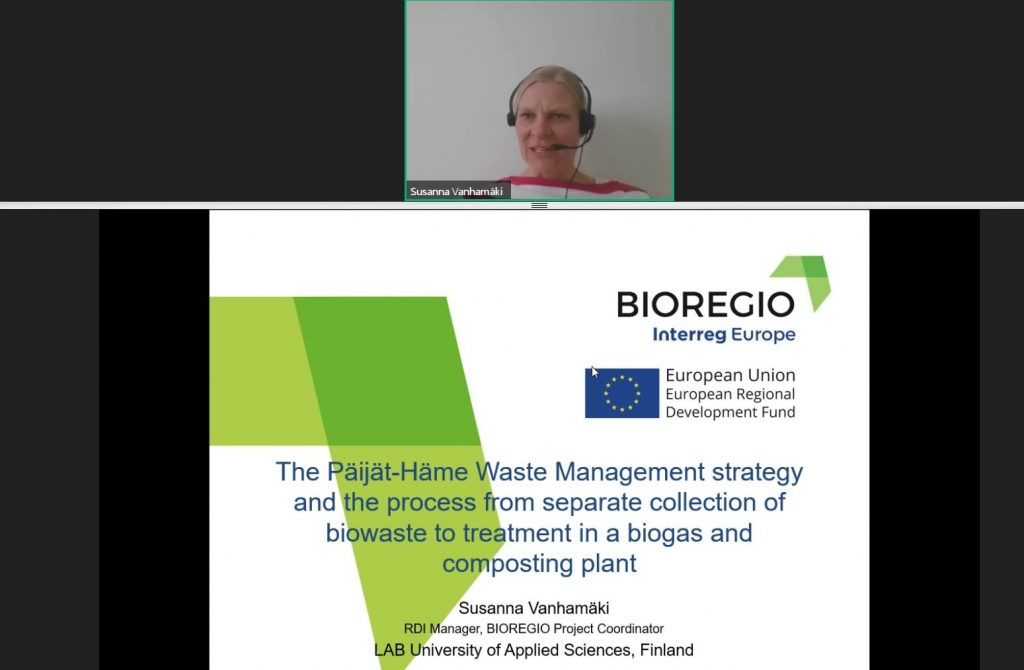
The Päijät-Häme presentation was followed by Nikolay Sidjimov from the Bulgarian Association of Municipal Environmental experts, who explained the co-digestion of kitchen and agricultural waste in the Perpetuum Mobile Albena. Finally, present biogas-powered district heating based on local waste streams in BIOENERGY-villages was presented by Volker Kromrey from Bodensee Stiftung in Germany.
After the presentations, a poll was launched for the participants: “What kind of AD plants do you think are most interesting to your city/region? AD plants for separately collected biowaste (Finnish case); AD plants for larger companies that produce lots of organic waste and need lots of energy (Bulgarian case); AD plants for rural communities’ energy auto-supply (Germany case)? The replies revealed that 48% of the participants at the webinar found the Finnish case to be the most interesting for them, while 33% replied the ‘Germany case’, 18% the ‘Bulgaria case’ and 3% ‘other’.
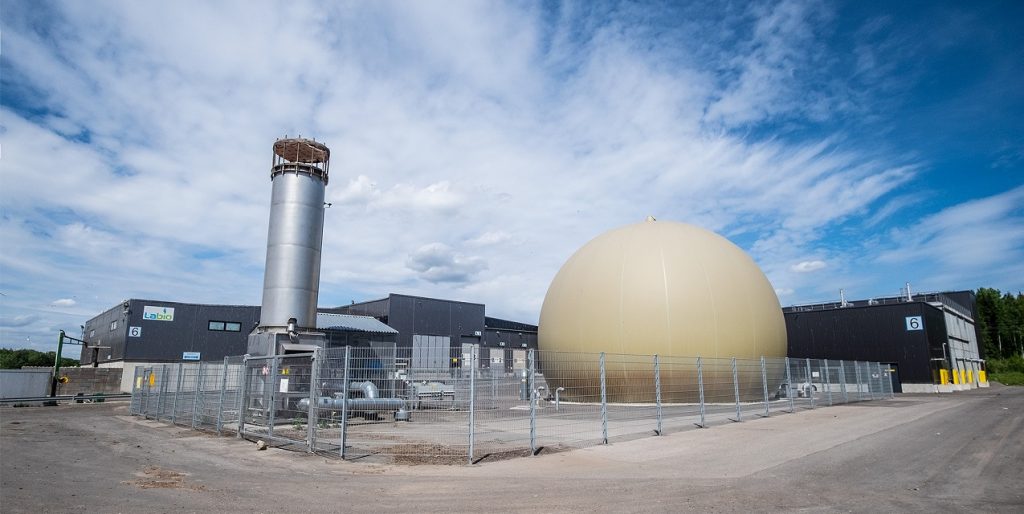
The presentations were followed by a panel discussion, where the benefits of biogas were underlined, and the transferability of the practices discussed. The aim of the webinar, to raise awareness among policy makers and to showcase excellent good practices of biowaste management from selected Interreg Europe project partners, was reached well. Further discussions on the biogas plant business models will continue led by the Policy Learning Platform.
Author
Susanna Vanhamäki, RDI manager at LAB University of Applied Sciences and the project manager of BIOREGIO.
References
European Commission. 2018. Circular Economy: New rules will make EU the global front-runner in waste management and recycling. [Cited 17 May 2020]. Available at: https://ec.europa.eu/commission/presscorner/detail/en/IP_18_3846
Interreg Europe. 2020a. Webinar on biogas from organic waste. [Cited 17 May 2020]. Available at: https://www.interregeurope.eu/policylearning/event/3423/webinar-on-biogas-from-organic-waste/?no_cache=1&cHash=fc27823a146db6ea2f9fde7c94e6b0b1
Interreg Europe. 2020b. Good practice: Utilisation of biowaste streams – bio-based industrial symbiosis. [Cited 17 May 2020]. Available at: https://www.interregeurope.eu/policylearning/good-practices/item/169/utilisation-of-biowaste-streams-bio-based-industrial-symbiosis/
Interreg Europe. 2020c. Project Summary. BIOREGIO. [Cited 17 May 2020]. Available at: https://www.interregeurope.eu/bioregio/

